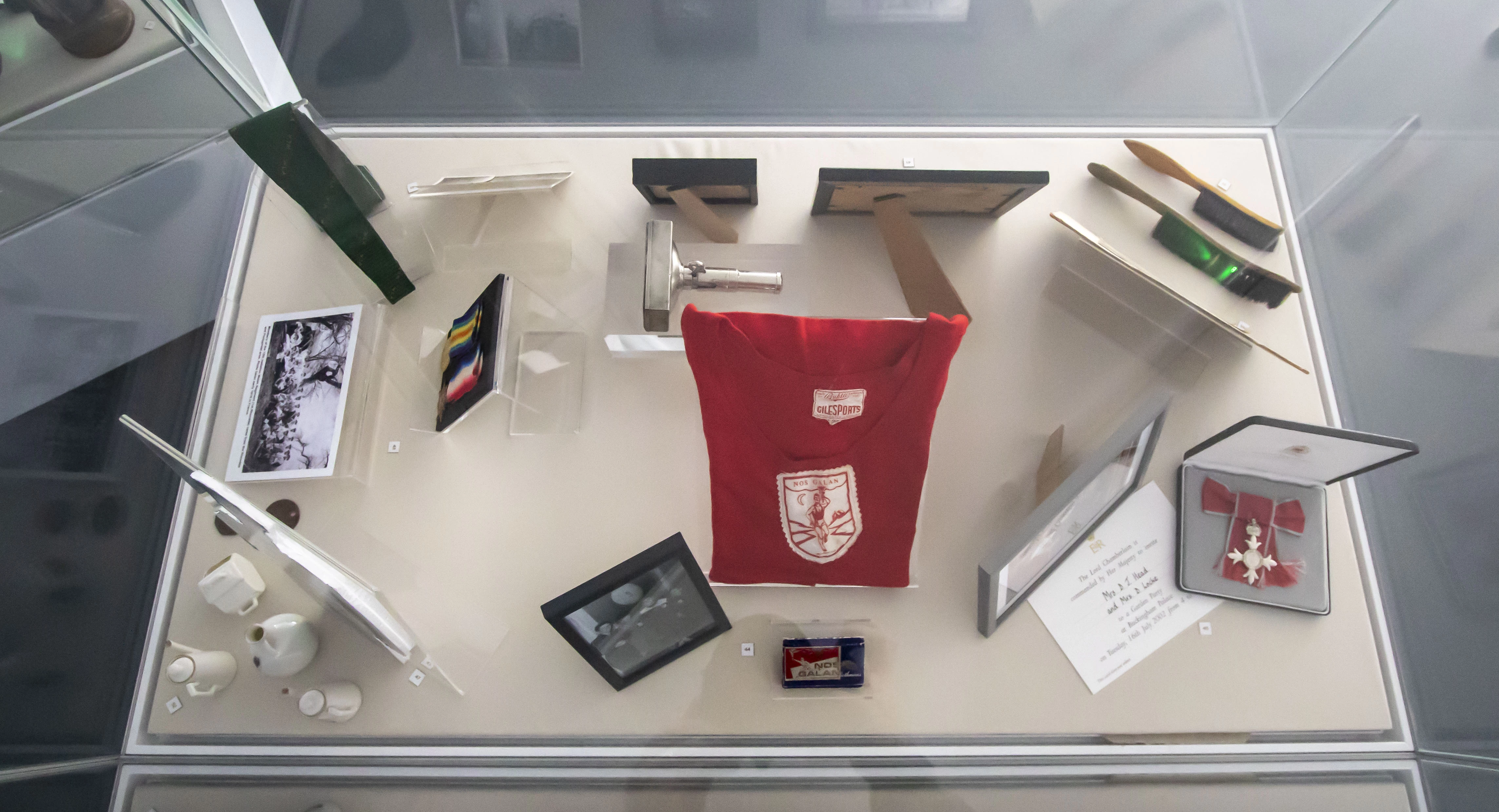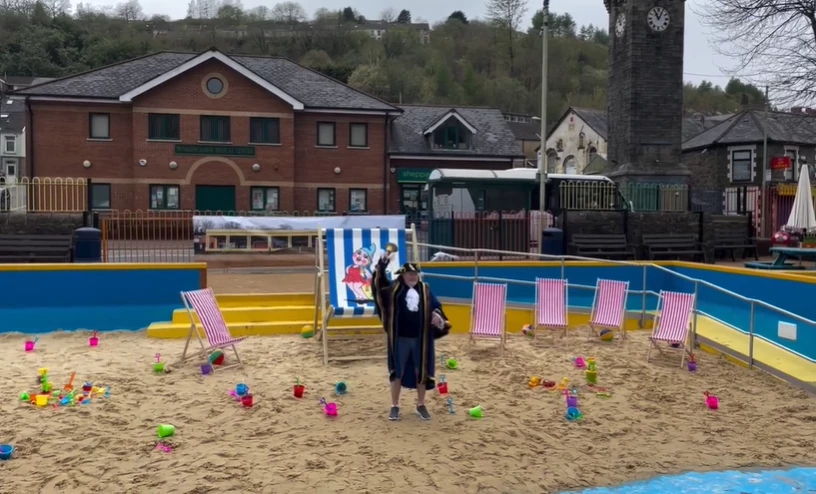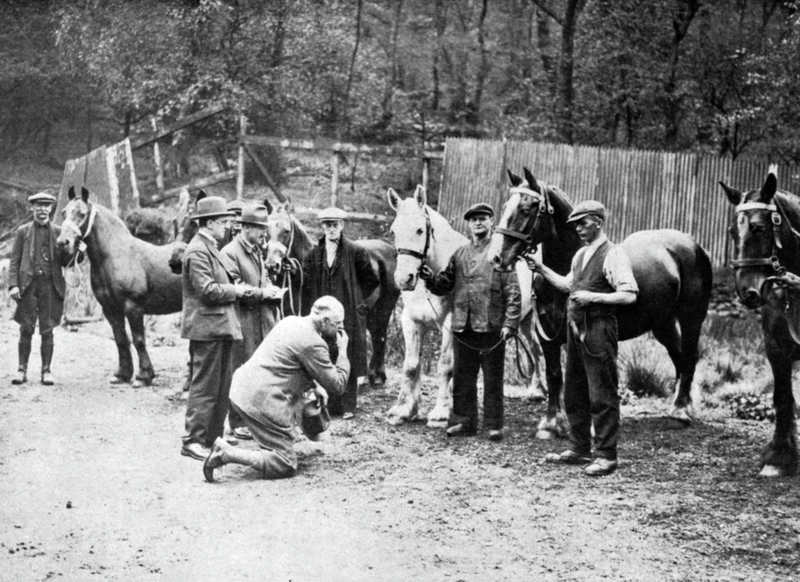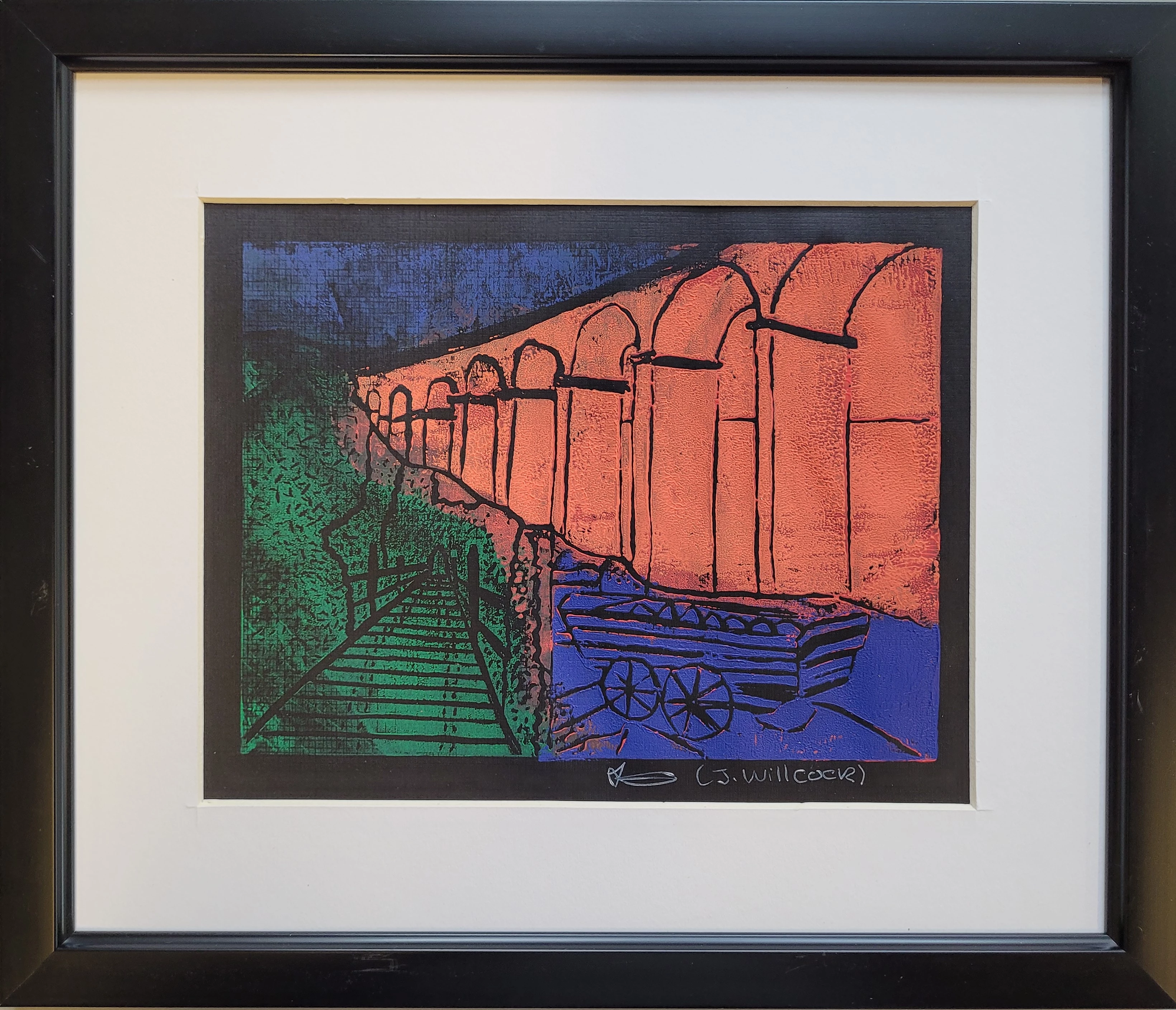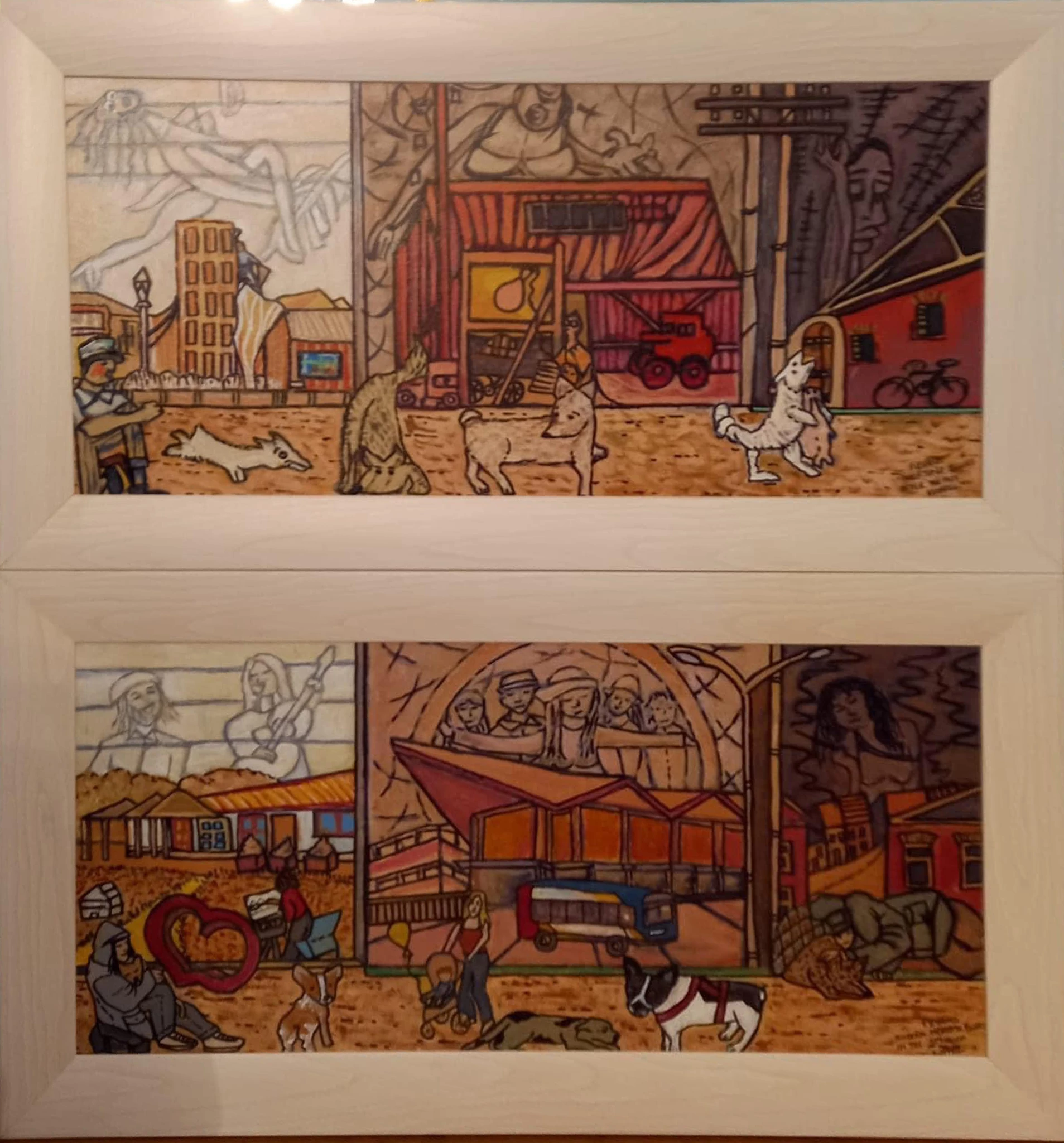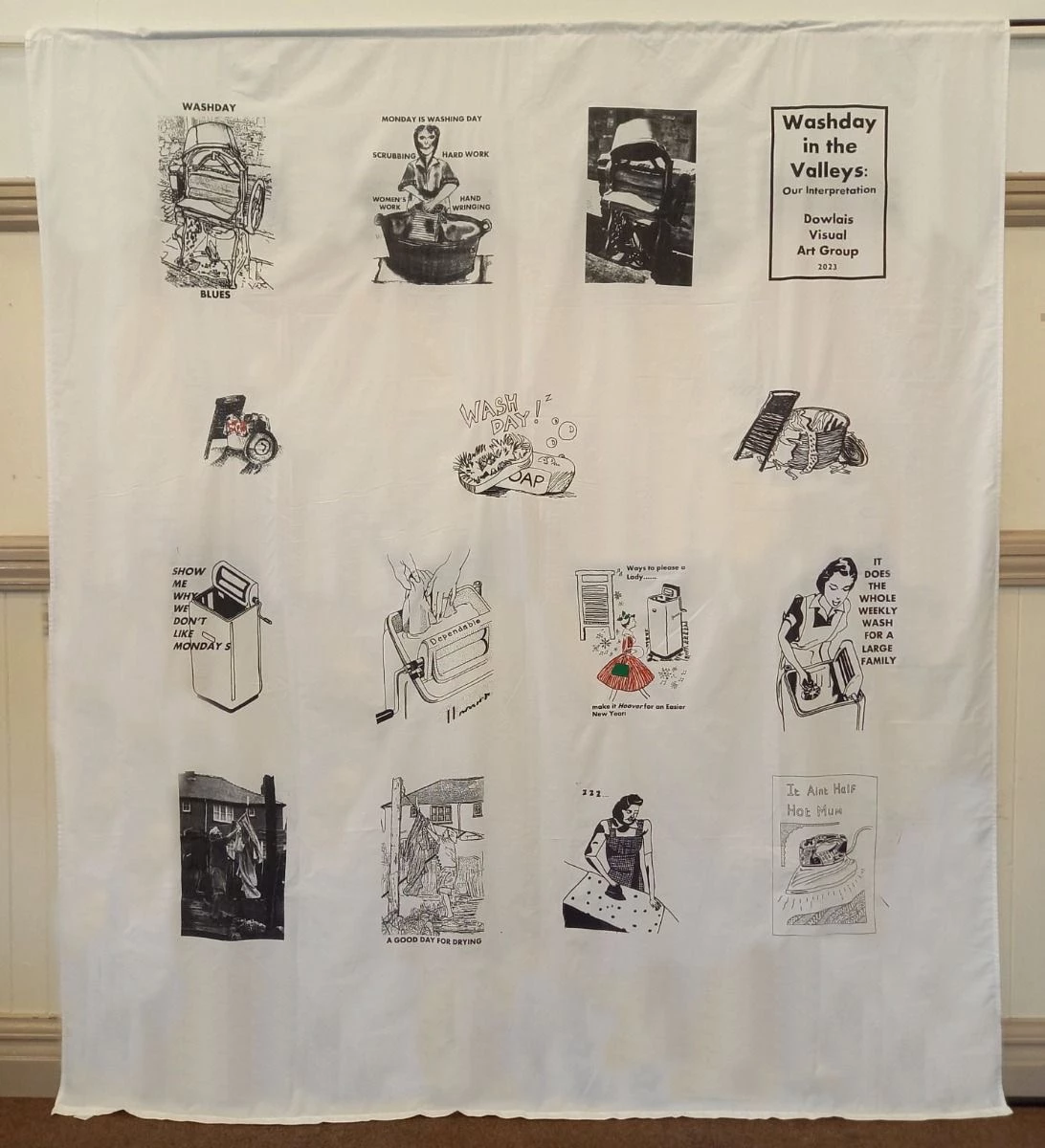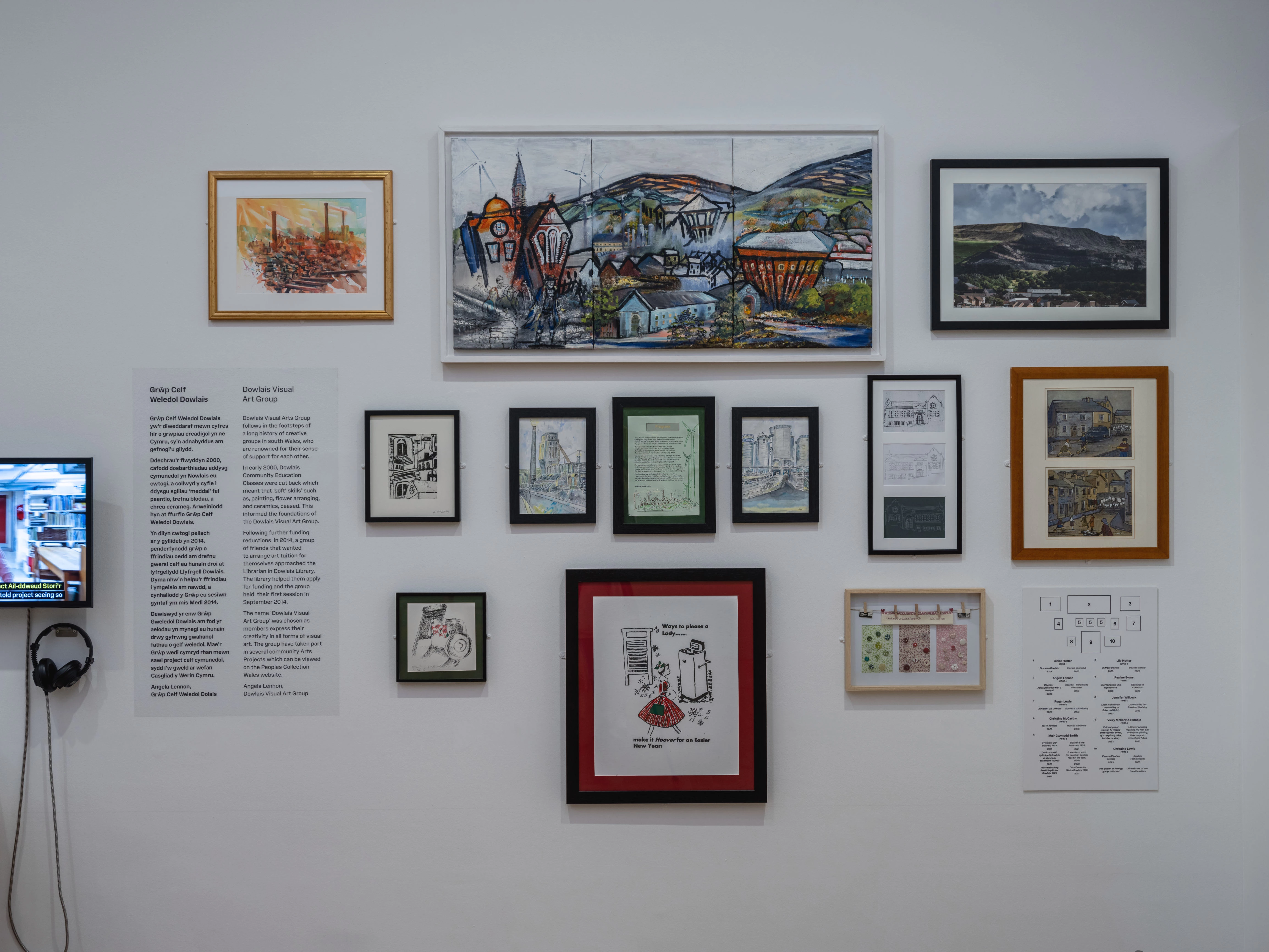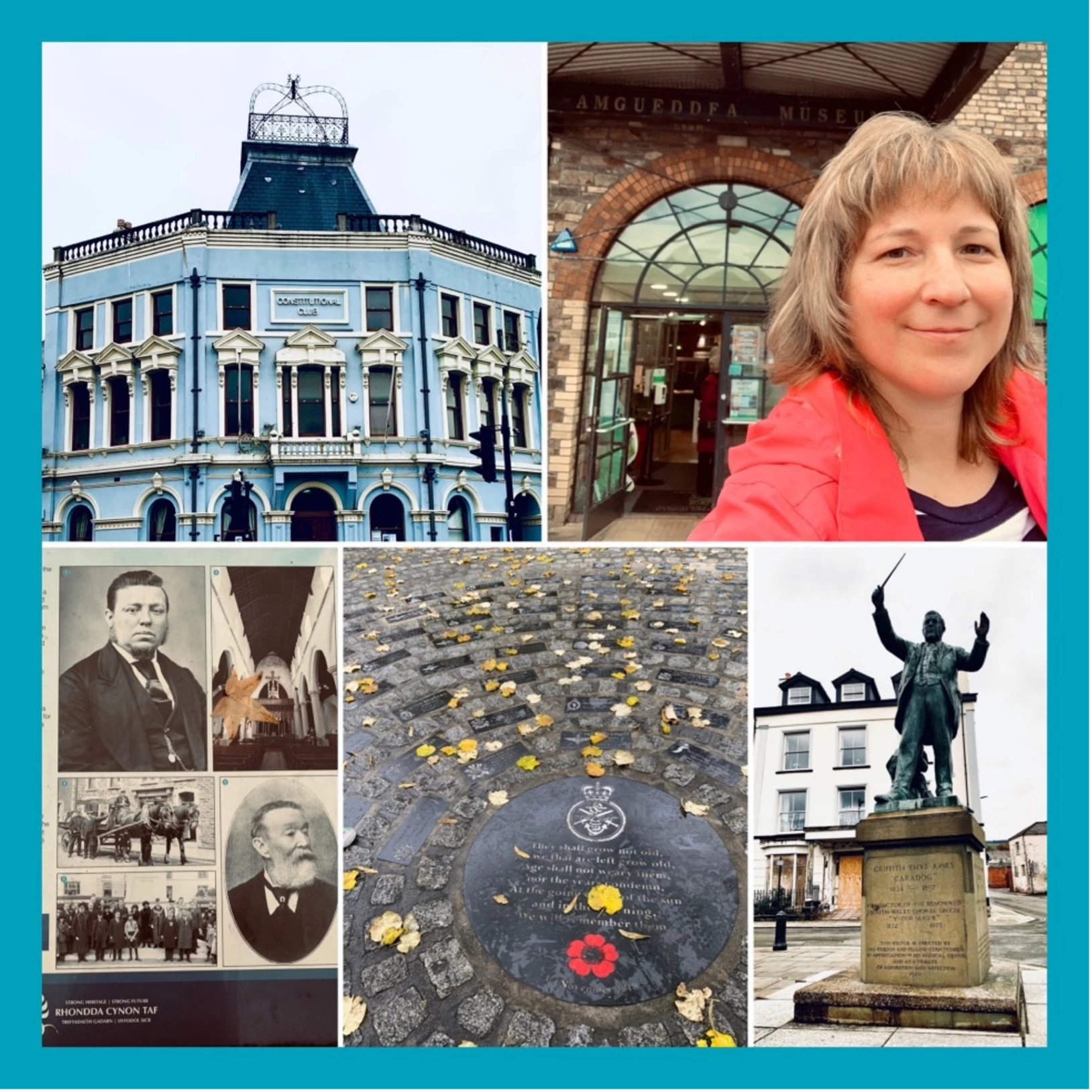The pinnacle of the Valleys Re-Told project was the Art Trail around Penrhiwceiber. It enabled us to celebrate focal points in our village inspired by artworks from the National Collection at Amgueddfa Cymru – Museum Wales.
Penrhiwceiber Art Trail © Eleanor Whiteman
Penrhiwceiber Art Trail © Eleanor Whiteman
Penrhiwceiber Welcome Centre
Penrhiwceiber Welcome Centre
Penrhiwceiber Welcome Centre, previously known as Penrhiwceiber Old Age Centre, was built in 1985. It was run successfully by Penrhiwceiber Old People’s Welfare Association until the lease was surrendered in December 2023. Simultaneously, a new lease was signed by Lee Gardens Pool Committee and the new name followed soon afterwards. Many activities are held at Penrhiwceiber Welcome Centre which are aimed at reducing the impact of poverty, loneliness and isolation. In January 2024, with funding from the Shared Prosperity Fund’s Levelling-Up Programme and Coalfields Regeneration Trust as well as with generous donations from Penrhiwceiber Old People’s Welfare Association, Trivallis and Cynon Taff Community Housing, repairs and renovation work began. By reconfiguring the building much-needed storage areas were made available. Sustainability and climate change were high on the agenda when the work was done and many energy-saving changes were made, reducing the building’s carbon footprint.
Penrhiwceiber and Matthewstown War Memorial
Penrhiwceiber and Matthewstown War Memorial
This proud monument, with its four clock faces, stands in the middle of Penrhiwceiber in memory of the 146 Penrhiwceiber and Matthewstown Fallen Heroes who gave up their lives for King and Country in the Great War, 1914-1918. It was erected by public subscription and unveiled on Thursday, 21st October , 1926. President of the Penrhiwceiber and Matthewstown War Memorial Committee was G. H. Hall Esq., M.P., J.P. The design was produced by the Hon. Architect, W. H. Williams Esq. from Mountain Ash. The contractor was Arthur J. Rossiter, Esq. from Caerphilly.
The Statement of Accounts, produced on 21st July 1927 list Receipts and Expenditure as £1160 14s and 7d. The document lists all the donations given. Also included is the Opening Ceremony document.
St Winifred’s Church
St Winifred's Church, Penrhiwceiber
In 1870 Church services were held in a cottage on Penrhiwceiber Road with a congregation of just 8, although Penrhiwceiber was not mentioned in the census of 1871. In 1881 Major Vaughan Hanning Vaughn Lee D.L., M.P. (1836-1882) gave land and the sum of £300 towards the building of St Winifred's Church. On March 29th, 1883 the memorial foundation stone was laid by The Rt. Hon. Lady Aberdare. After a building period of only 9 months the church was open for worship. By this time the population had risen to 4000 inhabitants, owing to Mr John Glasbrook sinking Penrikyber Colliery in 1872. The church has seen many changes over the years; in 1888 the south side was extended to allow the development of The Lady Chapel, Vestry and Organ Chamber.
In 1911 the church was extended westward to increase the capacity to 477. Further plans for extension were cancelled due to the 1st World War - 1914-1918.
Bibliography
- Churches of the Cynon Valley, Alan Vernon Jones, M.R.I.C.S. 2012 ISBN 978 0 9517081 1 8
- Cynon Valley History Society, HANES, Issue Number 76, Autumn 2016
Carmel Chapel, Penrhiwceiber
1881–2024
Carmel Chapel, Penrhiwceiber
Carmel was a Welsh Independent Church – Capel yr Annibynwyr, built for the influx of Welsh speakers coming to Penrhiwceiber to work in the pit at the end of the 19th century. It had an average annual membership of 300–400 during those early years.
It is a fine, large Grade 2 listed building with a simply designed exterior but a magnificent interior. The majestic pipe organ, carved wooden pulpit, exceptional four-sided gallery and all other fine wooden fittings were all listed.
Throughout its lifetime, it was used not only for church services but for many ‘Cymanfaoedd Canu’ and concerts. It could be said that music seeped through its walls from the famous anthems and hymns of Wales to the oratorios of Handel and Mendelssohn.
It was one of eight places of worship in the village but sadly the number has fallen to just one.
In 2024 it was sold to an evangelical movement.
Penrhiwceiber Workmen’s Hall
Penrhiwceiber Art Trail Closing Event
The sinking of Penrikyber Colliery in 1872 saw the population rise rapidly. After housing, school, and places of worship were built there became a need for somewhere for leisure and recreation. So in 1888, Penrhiwceiber Workmen’s Hall was built. Donations and a 1d deduction from miners’ wages provided the funding. As the community grew the building became too small and an extension was planned. However, during the General Strike of 1926 the funds were used to provide support to those in need. The building was extended later and housed a cinema, library, billiards room, large stage, dressing rooms, committee room and catering facilities. Extensive renovations took place in 1993. Today, the building is used for bingo and the provision of fresh fruit and vegetables at £3 a bag. The stage is still well used by the children’s drama group and for regular wrestling shows and occasional concerts and events.
Lee Gardens Pool
Lee Gardens Pool
Lee Gardens Pool is an outdoor children’s swimming pool. It was built with contributions from miners, and others, in 1957. The site was previously a garden (1935–1957) where people could come and sit and chat. However, the garden was apparently only used by a few elderly ex-miners. This led the women of the village to protest and request that the space be used for the benefit of children. The miners obliged and the pool was built. It was run by the local authority until 2013 when austerity cuts forced its closure. In 2015 local people came together to bring the pool back into use and Lee Gardens Pool Committee was formed. The pool re-opened the following year. With funding, mainly from the National Lottery Community Fund, a new pool with disabled access, a tuck shop and meeting room and a disabled toilet was opened in 2022.
Penrhiwceiber Changing Rooms
Penrhiwceiber Changing Rooms
The Changing Rooms are situated on the site where Penrikyber Colliery once stood. For this reason they were chosen to host the ‘pop-up’ galleries. The Changing Rooms were never part of the pit, but they provide washing and changing facilities for the countless football teams that play on Pentwyn Fields. It was here that people could come to see Chirpy the Canary with his owner Adrian Moses and Ceri the Miner. Ceri, a former miner and current curator at Big Pit in Blaenavon, was a font of knowledge and he explained to the schoolchildren and general public about the important role of canaries in saving lives. Artworks and artefacts were on display at the Changing Rooms, which brought the talks to life.
The Art Trails through the village were led by town crier and local historian, Mr Huw Williams of Merthyr Tydfil. His walks and talks were very informative and always delivered with humour. Huw gave up his own time to the project, freely, over its 12 days and everyone involved is extremely grateful to him for bringing the project to life.
By Allan Robinson
We had some fantastic opening and closing events for the Penrhiwceiber Art Trail. We would like to thank all those involved for their time, effort and support in making both events a great success.
